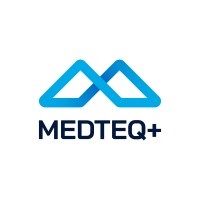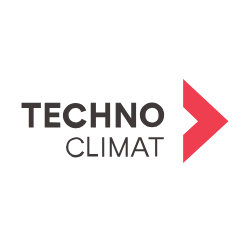
Closed
Group Entrepreneurship Capital Program
Last Update: October 27, 2025
QC, Canada
Supports real estate projects for Quebec social economy enterprises
Grant and Funding
At a glance
Funding available
Financing goals
Renovate your business/factory
Reduce the ecological footprint
Selling in a new market
Eligible Funding
- Maximum amount : 500,000 $
- Up to 50% of project cost
Timeline
- Open Date : September 8, 2025
- Closing date : October 24, 2025
Eligible candidates
Eligible Industries
- Finance and insurance
- Educational services
- Health care and social assistance
- Arts, entertainment and recreation
- Accommodation and food services
- Other services (except public administration)
- Public administration
Location
- Quebec
Legal structures
- Financial cooperative
- Non-profit
- Public or Parapublic institution
- Social economy enterprise
- Non-financial cooperative
Annual revenue
- From $ 100,000 to $ 10,000,000 in revenue
Organisation size
- All organization sizes
Audience
- Startups
Non-profit candidates
Sector of operation
- Economic, Social and Community Development
Target groups
- Business owners / entrepreneurs
- Nonprofits / charities
Revenue structures
- Mixed revenue (50%+ earned)
Scope
- Provincial
Overview
The Group Entrepreneurship Capital Program (PIEC) offers up to $500,000 in non-repayable funding to support social economy enterprises in Québec with the renovation, construction, or acquisition of commercial or industrial buildings. The program aims to facilitate business development and service expansion while improving financial viability for eligible social economy organizations.
Activities funded
- Renovation, improvement, restoration, or bringing up to code of a building used for the production, sale, or delivery of goods and services.
- Construction, expansion, conversion, or rebuilding of a building serving business or service delivery purposes.
- Acquisition of a building intended for commercial or industrial activities.
Examples of admissible projects:
$ 85,000
Renovating an incubator space for local start-ups to enhance business services
$ 250,000
Acquisition of a building to establish a cooperative workspace for freelancers and small businesses
$ 175,000
Constructing a new facility for a cooperative bakery to increase production capacity
$ 105,000
Expanding a non-profit daycare center to accommodate more children and increase accessibility
$ 250,000
Acquiring a new building for a non-profit theater company to expand its outreach programs
$ 100,000
Renovating a community center to enhance its services and sustainability features
Eligibility
- The applicant must be a social economy enterprise as defined by Quebec law, including cooperatives, non-profit organizations (NPOs), or mutuals.
- The company must derive more than 40% of its total revenue from self-generated economic activities during the last fiscal year.
- The business must be incorporated (registered) in Quebec, operate an establishment there, and conduct active business activities in Quebec, regardless of the incorporating jurisdiction.
- The applicant’s total annual revenue must be at least $100,000 and at most $10 million.
- For startups in operation for less than 2 years, a business plan or project summary and 24-month financial projections must demonstrate that the 40% threshold and revenue conditions will be met by project completion.
Who is eligible?
- Social economy enterprises (as defined by Quebec's Social Economy Act), such as cooperatives, mutuals, and non-profit organizations with commercial activities
- Organizations from all sectors are eligible, except for financial and insurance services, animal services, and beverage service establishments
Who is not eligible
- Companies in the financial services and insurance sectors.
- Businesses providing animal services.
- Bars and businesses whose main activity is serving alcoholic beverages (with limited exceptions for manufacturers).
- Subsidiaries of social economy enterprises, regardless of their legal structure.
- Social economy enterprises related to for-profit businesses, unless the for-profit entity is subordinate to the social economy enterprise.
- Professional or employer associations, religious organizations, unions, chambers of commerce, political parties, public or private foundations, trusts, sports teams, student associations, and private educational institutions (primary, secondary, post-secondary levels).
- Enterprises that have already received funding from this program since April 1, 2025.
- Businesses with primary activities in weapons, fossil fuels (except clean transition), gambling, violent sports, sexual exploitation, tobacco or drug-related services (with specific exceptions for Health Canada-approved products).
Eligible expenses
- Costs for bringing buildings up to standard, expansion, renovation, construction, or acquisition, including the purchase and installation of permanent (immovable) equipment.
- Purchase and installation of amortizable movable equipment (up to 40% of eligible expenses).
- Land acquisition costs (for building construction projects).
- Costs related to building-associated infrastructure (e.g., septic system, water connection) and exterior landscaping.
- Preparatory studies.
- Professional fees (e.g., architecture, engineering, surveying, notarial services, specialized firms for asbestos and materials control).
- Eco-construction costs (e.g., geothermal systems).
- Costs related to the integration of arts into architecture, as required by the applicable policy.
Eligible geographic areas
- Quebec
Selection criteria
- Quality of the financial structure, including complementarity with other available private and public funding sources (15 points).
- Demonstration that the non-repayable financial contribution from the program is essential for project realization (15 points).
- Clear demonstration of the project's medium- or long-term financial viability (10 points).
- Organizational capacity to successfully carry out the project, including relevant expertise and experience (10 points).
- General quality of the project, including coherence, realistic timeline, and reasonable costs (10 points).
- Importance of the project for the development or maintenance of the organization’s activities, and its alignment with the company's vision and strategy (unspecified points, included in the remaining points).
- Socioeconomic benefits generated, such as job creation, community impact, and economic leverage (included in overall evaluation criteria).
- Project’s eco-responsibility, including energy consumption reduction or responsible waste management (included in overall evaluation criteria).
- Consideration for interregional equity in the allocation of funding (included in overall evaluation criteria).
How to apply
1
Verify program eligibility
- Verify if your enterprise is eligible for the DEPART program
- Consult the program comparison table to prioritize the right program
2
Read the application guide
- Read the application guide thoroughly
- Understand documentation and requirements for eligibility
3
Prepare required documentation
- Gather all required documents, including financial statements, business plan, statutes, and letters of financial confirmation
- Prepare the detailed description of your company and project
- Ensure compliance with any language or other legal requirements
4
Complete and review the application
- Complete the online application form via clicSÉQUR
- Include all necessary supporting documents
- Review the assembled application for completeness
5
Submit your application online
- Submit your application on the Investissement Québec portal
- Receive automated acknowledgement of receipt
6
Provide additional information if requested
- Respond promptly to any requests for additional information or documents
- Track the progress and notifications about your application
Additional information
- Incomplete applications or those not meeting program criteria will be refused, but revised applications may be resubmitted if the call for projects is still open.
- All sources of project financing must be confirmed by at least letters of interest for funding to be granted.
- The organization’s website must have a French version to comply with language requirements.
- Applicants must remain owner of the assisted property for at least three years after project completion, or the grant must be repaid in full.
Contacts
integrationdesarts@mcc.gouv.qc.ca
1-844-474-6367
QC, Canada
Apply to this program
Frequently Asked Questions about the Group Entrepreneurship Capital Program Program
Here are answers to the most common questions about the Group Entrepreneurship Capital Program. This section explains what the program is, how much funding is available, eligibility requirements, application deadlines, and other important details to help you determine if this grant is right for your business.
What is the Group Entrepreneurship Capital Program?
How much funding can be received?
What is the deadline to apply?
Who is eligible for the Group Entrepreneurship Capital Program program?
What expenses are eligible under Group Entrepreneurship Capital Program?
Who can I contact for more information about the Group Entrepreneurship Capital Program?
Where is the Group Entrepreneurship Capital Program available?
Apply to this program
More programs like this

Grant and FundingOpen
ÉcoPerformance — Recommissioning of building mechanical systems
Gouvernement du QuébecFunding to optimize the operation of building mechanical systems

Grant and FundingClosed
NovaScience Program - Support for projects in scientific culture and innovation
Gouvernement du QuébecNovaScience promotes scientific culture and innovation development

Grant and FundingClosed
Community Organization Support Program (PSOC)
Department of Health and Human ServicesSupports Quebec community organizations in health and social services

Tax CreditsOpen
Tax holiday for a new business created to commercialize intellectual property
Ministère de l'économie, de l'innovation et de l'énergie du Québec (MEIE)Tax credit for commercialization of intellectual property (IP) in Quebec

Loans and Capital investmentsClosed
Program Supporting the Development of Tourist Attractions — Stream 1
Investissement Québec (IQ)Loans to develop Quebec tourist attractions

Grant and FundingOpen
Additional support for the circulation of shows
Société de développement des entreprises culturelles (SODEC)Financial support for touring Quebec music and comedy shows

Grant and FundingOpening Soon
MEDTEQ+ — AVISÉ program
Consortium de recherche et d’innovation en technologies médicales du QuébecFunding for validation and evaluation of innovative health technologies

Grant and FundingClosed
Call for projects to combat homophobia and transphobia
Gouvernement du QuébecFunds Quebec organizations’ projects combating homophobia and transphobia

Grant and FundingOpen
Innovative Projects Program
Hydro-QuébecSupports innovative, energy-efficient projects for multi-building developments

Grant and FundingOpen
Technoclimat
Environnement Québec (MELCC)Financial assistance for the demonstration of new technologies in Quebec
Sign up to our platform to access the Group Entrepreneurship Capital Program information sheet for free
Get access to 4,000+ programs, practical guides, personalized alerts, and an AI assistant to support your grant applications.